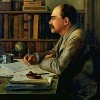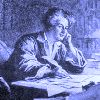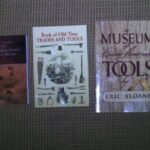
 I was hesitant to read Stephen King’s On Writing
I was hesitant to read Stephen King’s On Writing because I was afraid I would find little in it that was unexpected. Keep sending out queries, ✔ check. Don’t use this or that part of speech except when it works, ✔ check. Read a lot, ✔ check. Write a lot, ✔ check.
because I was afraid I would find little in it that was unexpected. Keep sending out queries, ✔ check. Don’t use this or that part of speech except when it works, ✔ check. Read a lot, ✔ check. Write a lot, ✔ check.
But, I did finally relent, and one key theme in the memoir struck me as more insightful than anything I had read about writing for years. In fact, I think it merits a book of its own. I am talking about the critical influence of people other than the writer in the success of that writer. For King, the most important other-than-the-writer person is his wife Tabitha.
No matter how important individual determination might be, for a social creature like Homo sapiens there is no such thing as individual success. All success is cooperative. There would be no Stephen King (as we know him) if there were no Tabitha King.
So, today I want to share what I feel are the most revealing and inspiring quotes on Tabitha from On Writing. Continue reading →

 I love this article. It is realistic and honest, even brutally so, but tough and helpful. Love it, love it, love it.
I love this article. It is realistic and honest, even brutally so, but tough and helpful. Love it, love it, love it.

 I was hesitant to read Stephen King’s
I was hesitant to read Stephen King’s 
 In
In 
 In a damn* interesting piece yesterday at Talk To YoUniverse, Juliette Wade discusses how writers can navigate the differing perspectives of characters inside and outside a culture group.
In a damn* interesting piece yesterday at Talk To YoUniverse, Juliette Wade discusses how writers can navigate the differing perspectives of characters inside and outside a culture group.
 You’ve come a long way, baby! I mean … um … ladies.
You’ve come a long way, baby! I mean … um … ladies.
 Some writers might dismiss the concept of story structure as contrived of stiflingly un-artistic conventions, a set of gimmicks reserved for mere “genre” fiction, i.e. stories with (allegedly) little importance.
Some writers might dismiss the concept of story structure as contrived of stiflingly un-artistic conventions, a set of gimmicks reserved for mere “genre” fiction, i.e. stories with (allegedly) little importance.
 I have a Top Book of 2010. Yes, a book. Singular.
I have a Top Book of 2010. Yes, a book. Singular.
 procraftinate /pro-kræf-ti-neit/ v. – to put off writing and sending query letters to literary agents so one can continue researching, writing, and rewriting fiction.
procraftinate /pro-kræf-ti-neit/ v. – to put off writing and sending query letters to literary agents so one can continue researching, writing, and rewriting fiction.
 So, I walked to work today.
So, I walked to work today.